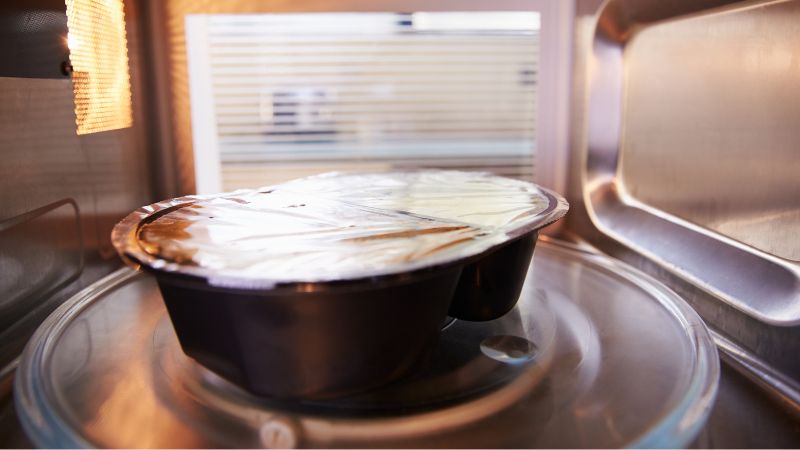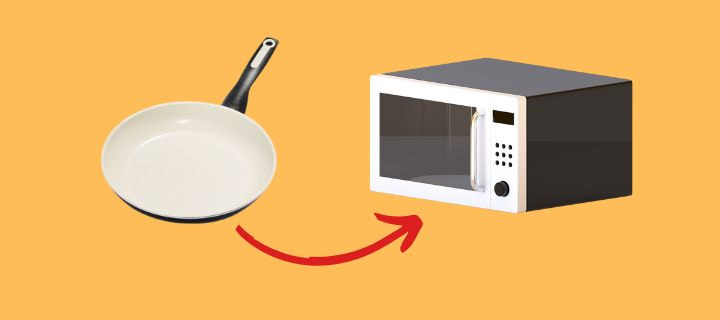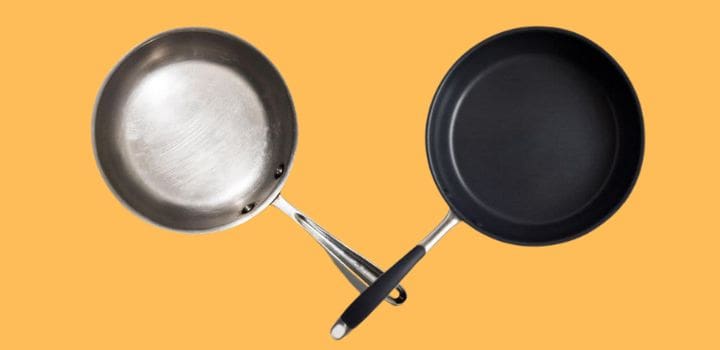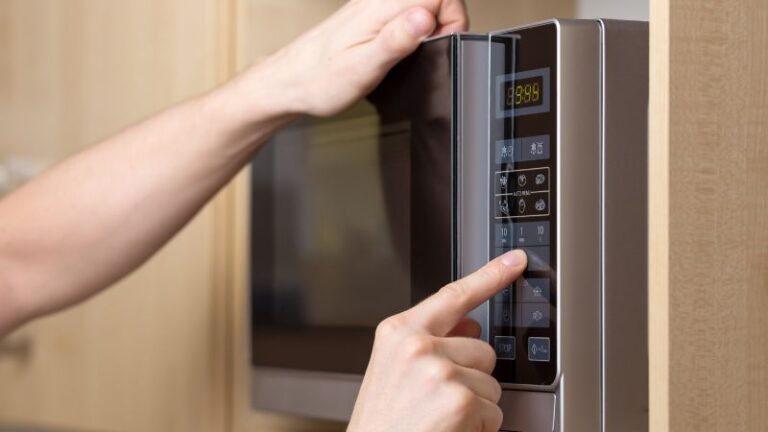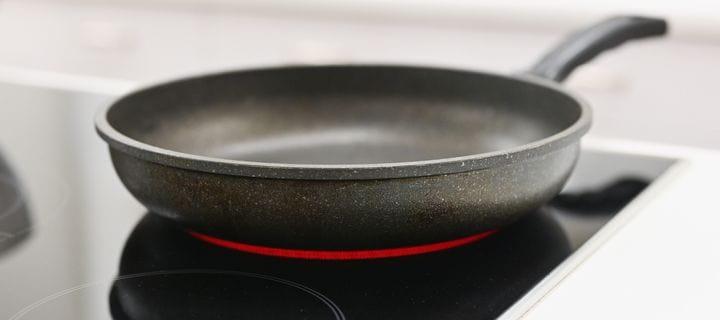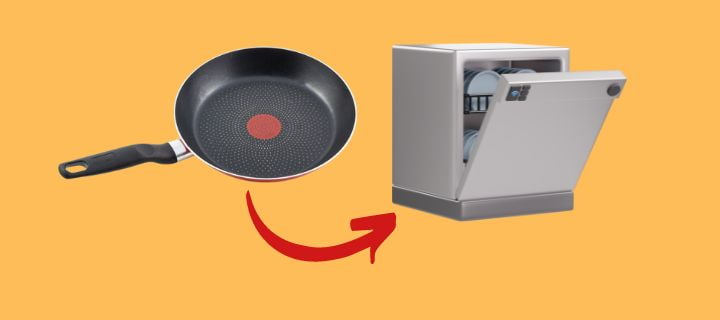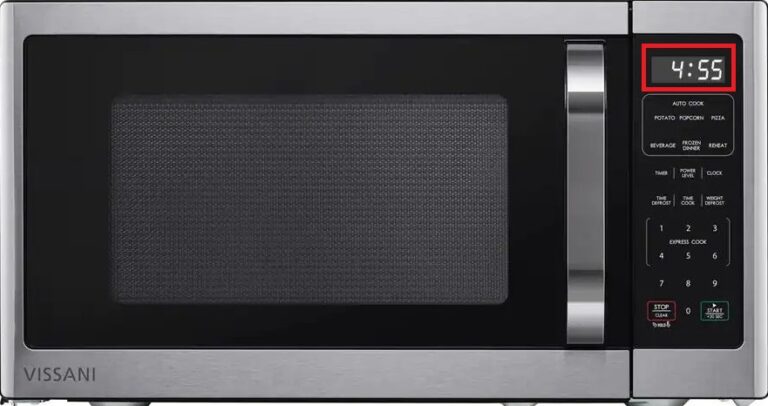Are you wondering does ice melts in the microwave or not? Worry not; you’re not the only one considering this question. There are a lot of people, like you, who think about it. Luckily, I’ve done some experiments on this topic, so I know the accurate answer.
Most of us think ice can’t melt in the microwave, which is, in a way, true. But it’s not a complete truth because ice does melt in the microwave; however, it takes time (a lot of time).
The reason why it takes time and why it doesn’t melt in seconds is hidden in the process of how a microwave works and boils water. Let’s understand science in simple words!
Do Ice Cubes Melt In the Microwave?
In general, yes ice cubes melt in the microwave but not instantly. An example is if you ever microwave ice cream or water, you’ll notice ice cream will melt, and water will be boiled in a matter of a few seconds. However, the same thing will not happen with ice.
Experiments!
I’ve done two experiments, I put two to three solid ice cubes in a bowl, and in the second bowl, I put ice cream. A minute later, the ice cream melted in the microwave while the ice cubes were the same as before.
The second experiment was similar, but I used water instead of ice cream in one bowl. About 50 seconds later, the water started boiling, and the ice cubes were the same; there was no big difference.
Why Doesn’t Ice Melt in the Microwave Instantly?
Seeing the result of the experiment, the question of why ice doesn’t melt in the microwave instantly like it boils water comes to my mind. Subsequently, I started searching for the answer and got the reason.
Science Behind Melting Ice Cubes and Water!
Microwaves generate high-frequency electromagnetic waves that cause water molecules to vibrate and produce heat.
When you place a cup of water in a microwave, the water molecules absorb the energy from the microwaves and start moving and colliding. This causes the temperature of the water to rise, eventually leading to boiling.
The above scenario doesn’t happen when you put ice cubes in the microwave. The reason is that ice is frozen water; it’s not in a liquid form.
Frozen ice has strong hydrogen bonds that keep the water molecule locked together in a rigid structure. Since the water molecules are locked, they can’t vibrate and produce the heat that’s necessary to melt the ice.
So does that mean ice can’t melt in the microwave? No, that’s not the case.
As mentioned above, ice has hydrogen bonds, which makes everything difficult. The good thing is this bond can be weakened by using heat.
The catch is that microwave heat for 30 to 60 seconds doesn’t work. You may have to set the microwave for about 3 to 4 minutes or even more and go for the second round, depending on the ice cube’s situation.
By providing a few minutes, you’ll allow heat to weaken the hydrogen bond. Once ice’s hydrogen bond weakens, the ice cubes will start melting gradually.
Is It Safe to Microwave Ice?
Yes, it is safe to microwave ice; nothing bad will happen. Your microwave will not catch fire or explode or anything like that. Remember, just don’t expect results immediately, and know there are a few caveats.
For example, you should keep in mind that once the ice melts, the water will heat up instantly. So make sure to check the situation of the ice cube.
Once you’re sure the ice cube is melted, remove the bowl instantly. Leaving even an extra few minutes can heat up water that can cause burns or other injuries while taking it out.
Can You Put Frozen Water Bottle In Microwave?
Yes, like ice, you can also put the frozen bottle in the microwave. This process is completely safe if you’re using a stainless steel bottle. But there are some issues if the bottle is made of plastic.
Plastic can melt or release harmful chemicals when exposed to the heat generated by microwaves. To ensure safety, experts only recommend using plastic that’s labeled microwave-safe.
Hence, if the frozen bottle is made of plastic, ensure it’s microwave safe. Otherwise, don’t put it into the microwave; the consequences will be dangerous.
How Long to Melt Ice in the Microwave? Experiment!
The time it takes to melt ice in the microwave can vary depending on how frozen the water is. I experimented with two cups of ice cubes to find out how long it takes to melt ice in the microwave.
Experiment One
The first cup had ice cubes that were not solid because I had only put the ice cube tray in the freezer for about an hour. When I put these ice cubes in the microwave, it took around 3 minutes for the ice to melt completely.
Experiment Two
The second cup had ice cubes that had been in the freezer for two days. When I put this cup in the microwave for 3 minutes, I thought the ice would melt completely, but after 3 minutes, there was still ice left.
Only half of the ice had melted, so I again repeated the same process by adding the cup back in the microwave for round two. After the second round, the ice melted.
Key Points to Learn!
What you need to learn from this experiment is how frozen ice cubes matter. Usually, it takes at least 2 hours to freeze water into ice cubes.
If the ice cubes are not frozen solid because they were in the freezer for less than two hours, the hydrogen bond won’t be strong. This means the ice will melt in just a few minutes in the microwave.
On the other hand, if the ice cubes are perfectly frozen, the hydrogen bond will be stronger, and it will lock the water molecules together firmly. As a result, you may need to microwave the ice cubes for more than 3 minutes.
Final Words
So does ice melt in the microwave? Yes, it melts but not instantly, as it happens with boiling water. In addition, I don’t encourage any of these experiments for fun, as microwaves are designed to heat food and liquids, not ice cubes.
If you need to melt ice, use a more appropriate method that is safer and more effective. For example, you can add ice to hot water or just leave the ice cubes in a bowl. After a few minutes, the ice will start melting automatically.

